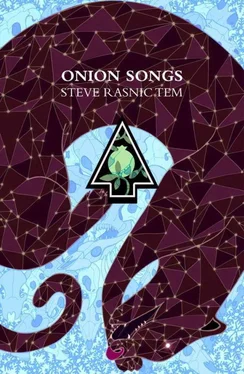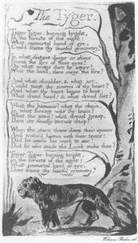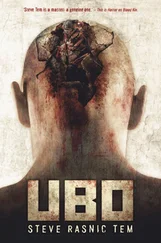TUTOR: Child, you are not the first to stumble in his calculations. You are not the first who has felt this. Pain. Calm down and look at your. Numbers. Please count them. Slowly. It is all we have to keep ourselves. Sane.
THE MASK CHILD(swaying, dancing as the TUTOR fades away): So it’s one and three, and four who loves seven and more. My ten and my twenty have been lost in all the subtractions that count themselves lucky to be out the door. So please leave all your digits at home. My heart is no longer good at figuring. My poor brain can no longer do the math. What you see is all subtracted. What you see is in a negative state. Just leave me with my solitary. Number. Just leave me with my one.
[THE MASK CHILD settles onto a bench in the middle of the stage, his head down. The lights change to day, to night, to day again. The BOYS and GIRLS appear on stage, all wearing masks. They form one CHORUS, their speech alternating and overlapping with that of THE MASK CHILD. You have a lot of flexibility as to how many times to repeat the speeches until the next one begins. The idea is to create waves of conversation, song, sound. Find the mix that sounds the best.]
THE MASK CHILD(Toward the end of this speech the CHORUS’ first speech begins. Again, throughout this scene overlap these speeches until it seems appropriate to begin the next one): Real boy. I go to sleep and I’m. A real boy. With dreams just like all the. Others. Playing games just as if I. Belong there. Singing songs just as if I can. Feel them.
CHORUS: Time to work now. No time for all these games. When we were children we played games. Now we have jobs and all these duties. And no time for all these games.
THE MASK CHILD: What is this? Why do all of you wear masks? I can see you in your masks. Are you mocking me? Is that why all of you wear your masks? I look at you and I see so many masks.
CHORUS: We have jobs now! There is no time to be so. Foolish. There is no time to be so. Different. You should be so. Happy! That now we all are wearing masks. We’re your brothers and sisters in our masks!
THE MASK CHILD: That’s not at all what I ever. Wanted! The mask was just what I. Needed. And not what I ever wanted. You all look so foolish in your masks. Now the whole world’s wearing masks.
CHORUS: Isn’t it time you finally. Grew up? Isn’t it time we all were. Grown up? It’s so much easier wearing masks. We all look better wearing masks.
THE MASK CHILD(lying down on the bench, growing sleepy. The CHORUS begins to fade into the shadows): It’s nothing I ever. Wanted. I just needed someone. To talk to. Now the whole world’s wearing masks. I can’t see their hearts for all these masks.
CHORUS(softly, in the shadows): Can’t you see we’re wearing masks? Growing up demands a mask.
[The NARRATOR drifts quietly on stage as the chorus departs.]
NARRATOR: As I said before, we have evolved. We are a better race now. Grown-up, civilized folk are so much more accepting than they used to be. We have learned to value the person behind the mask, far more than the mask itself.
Did I tell you we have learned? Oh, certainly, certainly we have. Life would be almost intolerable if we hadn’t.
THE MASK CHILD disappeared some time after the TUTOR’s death. Some say he passed away from exposure. Others say he simply blended in with every other mask. They say his parents went looking for him. They say his parents never found him.
[Fade out the NARRATOR. The PARENTS come back on stage. They find THE MASK CHILD sleeping on the bench.]
PARENTS: Just look at him! Didn’t we say he would not understand? Just a boy, he cannot understand. How could he know how people are? How could he know what must be done?
[They go to THE MASK CHILD and begin tampering with his mask.]
He always wanted to be. A real boy. How could he know what must be done?
[They remove the mask and toss it away. There is no head underneath it.]
In the night, when no one is listening, where no one can hear.
[They begin removing his clothing/drape. Again there is nothing underneath.]
PARENTS: In the night, dear child, in the night. We always wanted. A real boy.
[They toss the drape completely aside. There is no MASK CHILD. Fade to black.]
A Fiction in 54 Cards
Read The Rules of the Game. You don’t have to follow them, but you should at least know what they are. And everybody should learn How to Play.
The Rules of the Game
1) Lives are understood to be finite, but we’re always surprised when they end. Stories are discrete and self-contained and we look forward to the appropriate finale. Pick ten cards. Or pick twelve. This is your story. Accept the order of your deal or determine for yourself what comes first, what comes last, in this narrative of John.
2) We seek balance in our lives. Sometimes we achieve it, sometimes not. But at least in our fiction we can tamper with the scales. Pick three cards from each of the four suits to tell John’s tale.
3) Or perhaps you don’t want the responsibility of the story; you want to surrender to the lack of control you know you don’t have any way. So for you we’ve numbered the cards, 1-54, to make it easier for you to reach some kind of order. We’ve tried to oblige you, tried to find some arrangement that at least makes some sense to us . Pure illusion, of course, for out of the collection and recollection of moments we’ve learned that you can conclude anything about a life. But, still, we’re willing to humor you this conceit of a beginning, a middle, and an end.
4) You will notice that each card bears a different design, as if assembled from dozens of different decks. This is because uniformity is some comforting illusion, and not a natural order at all. We’ve provided numbers and names for suits, but honor if you will the differences in each moment. It will make your game last.
The Cards
1. philosophies
A strange thing, John thought, that we appear to live our lives in a line, moment by moment, and yet our memory of its significance is all a shuffle, key moments taken from here and there, and not necessarily chronologically. Hard to say what card might find its way to the top—it might well be a matter of chance or temporary circumstance. Only a few people seemed to have the ability to order the deck the way they wanted. You could not change the actual cards themselves, the specific events; but to change how you felt about them? Perhaps all that was required was another shuffle, a new deal.
2. dreams
Before John’s uncle lost his life, he lost the names of things. His car became a comb, his bed a guitar. “I have to get into my guitar now,” he would say. “I am suddenly very tired.” The next morning he might tell anyone who would listen, “I had an interesting sing last night. Many windows happened. Where is my flowerbed? I miss it so much!” And then he would cry. His children were upset when he lost their names and referred to them as cups and spoons and rabbits. His daughter wanted to know if her father still loved her if he did not know her name. John worried the same would happen to him. Perhaps that was why John told her, “He tells me he loves you all the time, it’s just that as he nears the end of his life everything reminds him of you.”
3. behaviors
It had become terribly important to John that he track down every lover and friend from his past. It was not simply a matter of tying up loose ends, but of establishing those ends in the first place. “Do you remember who I am?” he might begin a conversation, and wait anxiously for the answer. The comings and goings of people through one another’s lives, possibilities taken and opportunities denied—these were the things that obsessed him. If memory could not be verified and anchored, how could he be sure he’d lived the life he’d thought he had?
Читать дальше












